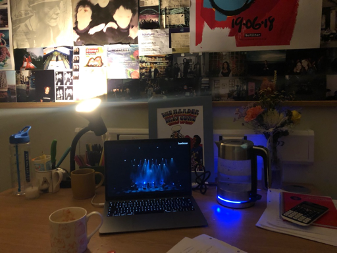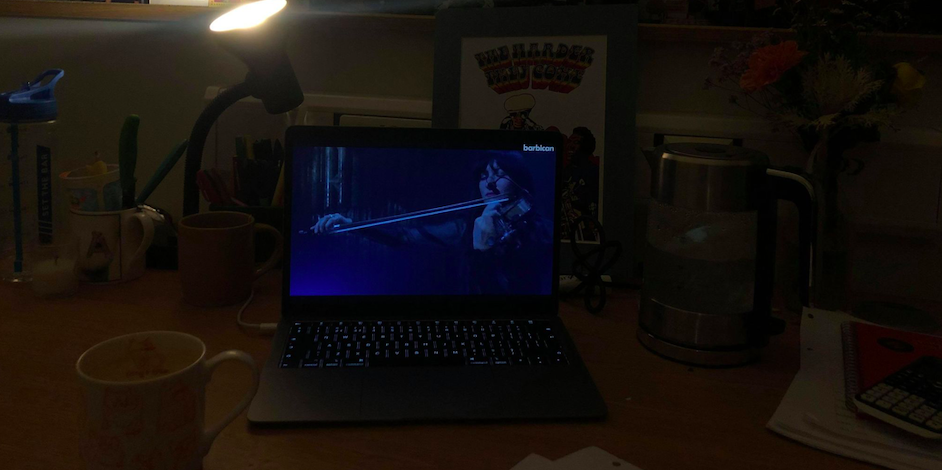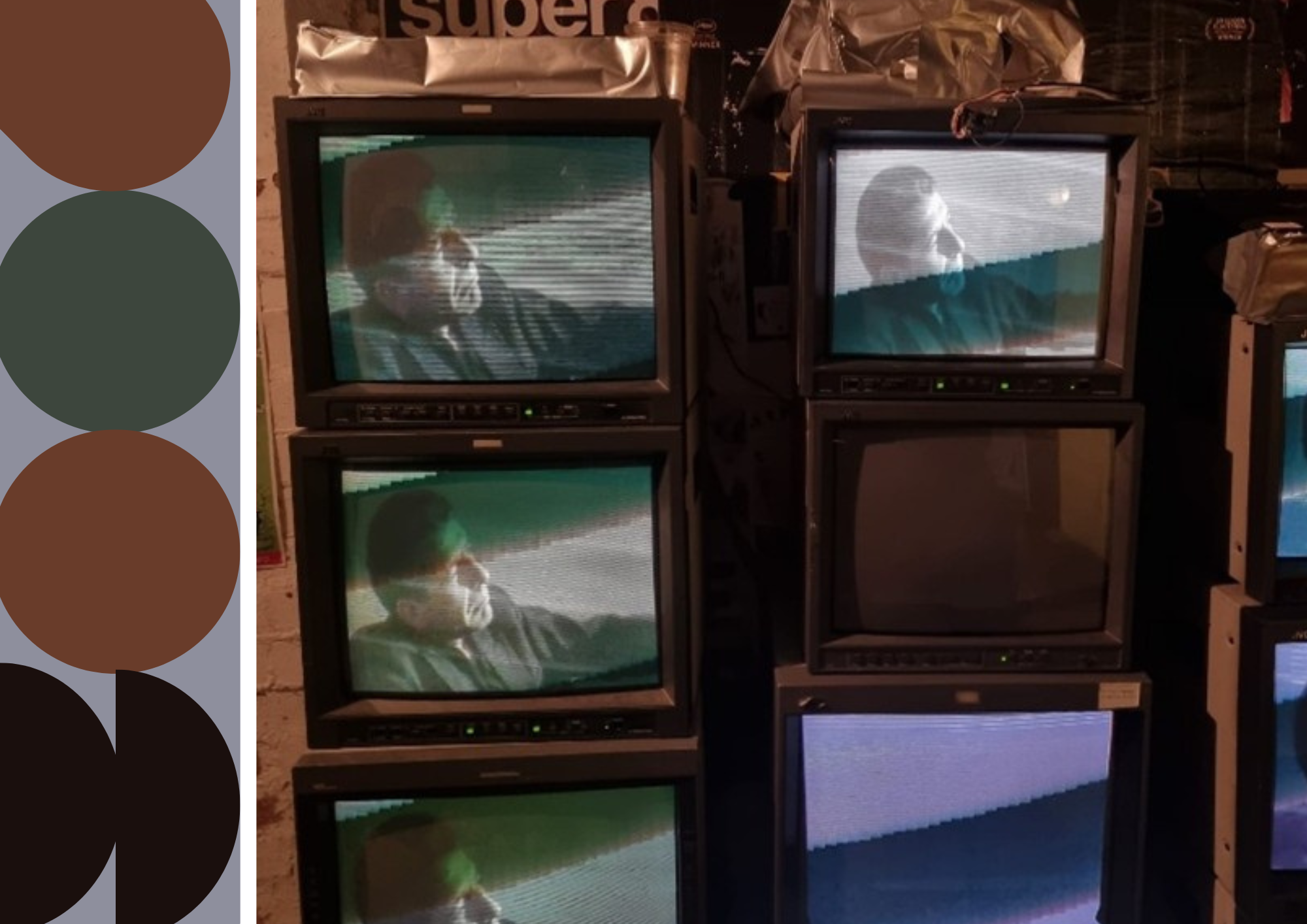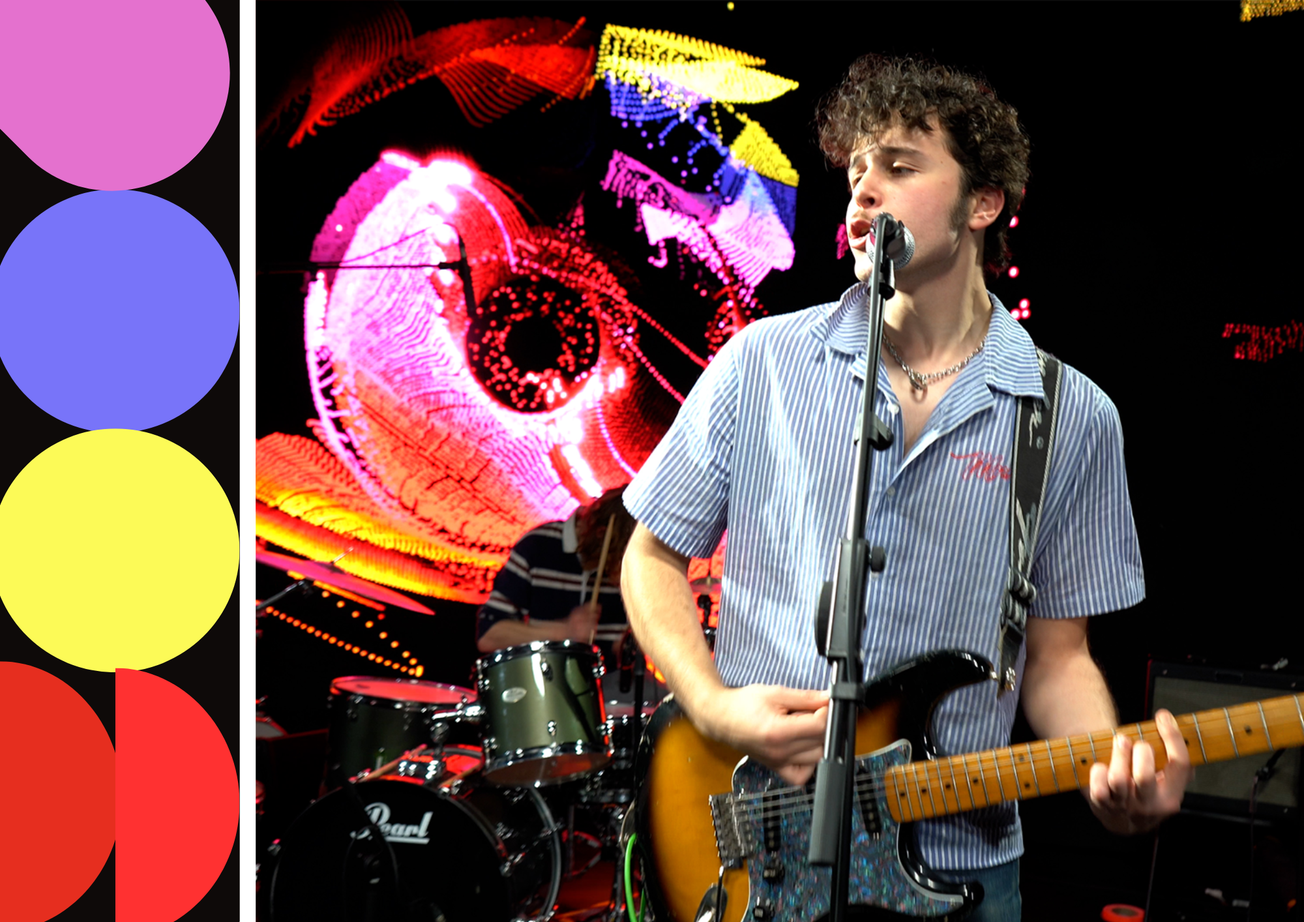By Lulu Ingram, First Year Chemistry
Saturday night, 8pm. I switch on the Barbican livestream. I’ve joined early - I catch a looping voice calling out ‘Can you hear this?’ and then a distant plea for donations to the venue.
I scramble for my headphones in a dimly lit uni room and sit back with a cup of tea. Erland Cooper emerges on screen in a blue lit hall. In the venue, the lights would saturate your body and turn you a strange hue; the blue barely lights my face.
Cooper intended to transport his audience to Orkney. In an interview with The Quietus about Cooper’s plans for the Barbican concert, he states ‘I wanted to just play with the theatre of it, within the realm of sound and light and moving picture.’ Haar starts to play. Layered ‘ooohs’ from the singers mix with moaning violins. I am drawn in.

The song ends with the cameras panning to the audience. As per the current restrictions, tonight’s 1900 seats are occupied by just a handful of socially-distanced fans. However, a thunder of applause roars in my headphones. ‘Ey, ey, where is everyone?’ jokes Erland. He tells his audience that the ‘fitting’ thing to do now is to listen to the gannets; his song Solon Goose begins. Waves crash across my screen as throaty birdsong sounds out.
What is an online concert? Is it more than a YouTube video? I saw John Cale in the same venue back in March 2018. I sat near the front, near to the great man, and felt the drums ringing in my ears and enjoyed the mix of bearded Shoreditch hipsters and old men in their fraying band tees packed into the hall. This sense of communality and stage presence cannot be communicated on a livestream.
Ex-Blue Mountain staff to open new, socially-distanced venue
‘A tale full of sound and fury, signifying nothing’: IDLES, Ultra Mono Review
However, the Barbican’s venture is applaudable. There is excitement; the sense that you’re a part of an event which is happening right now. Perhaps it’s the personal interjections from Erland Cooper, or the overhead pans of the hall, which tap into distant memories of hearing live music in venues.
And the medium offers something new: if live music in a concert hall offers the communal, this online steam is intimate. Live music is fed into your personal space.
Hope let’s you dream during the darkest of days. Dreams let ideas form and fall like the lightest of feathers. They may soften the hardest blow. #Letmusiclive. A heartfelt thanks to @barbicancentre and my dear musicians and friends who joined me side by side to play. Thank you 🕊 pic.twitter.com/Dg0lCV2x2p
— Erland Cooper (@ErlandCooper) October 12, 2020
But as the 70 minute performance unfolded, I became weary. Cooper’s music, rich to the edge of queasiness, sometimes reminds one of commercial soundtracks. To this student’s ears, it would be better punctuated by space and brought to life by more contrasting textures. There’s no shortage of mellifluousness, but precious little that is harsh or brittle.
Unfortunately, the supporting elements played into this sweet romantic vibe. The London Contemporary Orchestra played their cellos and violins with long, grey feathers.
"It was an ambitious evening of live music."
Erland introduced poet Kathryn Joseph as a swan (it’s never a good sign when someone has to explain what a performer symbolises), at which point Joseph wandered in wearing a pillowy white dress and a surgical mask and recited her delicate poetry musings, which, at times was lost in Erland’s instrumentals.
Overall, it was an ambitious evening of live music. The livestream format ought to lend itself to such delicate genres of music – there was no frenetic energy in the audience to be missed, just quiet, seated contemplation – but for me, the experience fell flat. One can’t help but feel nostalgic for the gigs gone by.
The editor takes no responsibility for the views expressed by our writers.
Lulu Recommends...
Featured: Lulu Ingram
Do you like swans? Why?








